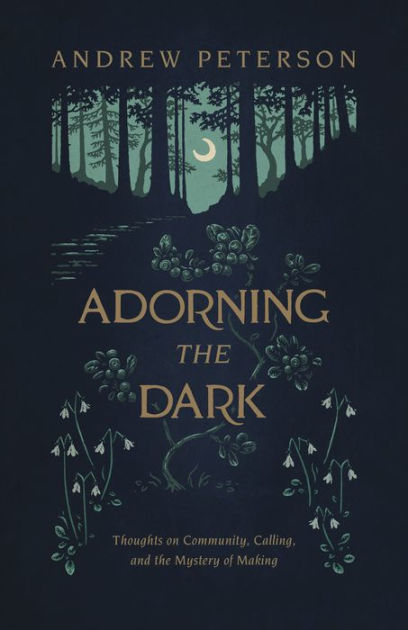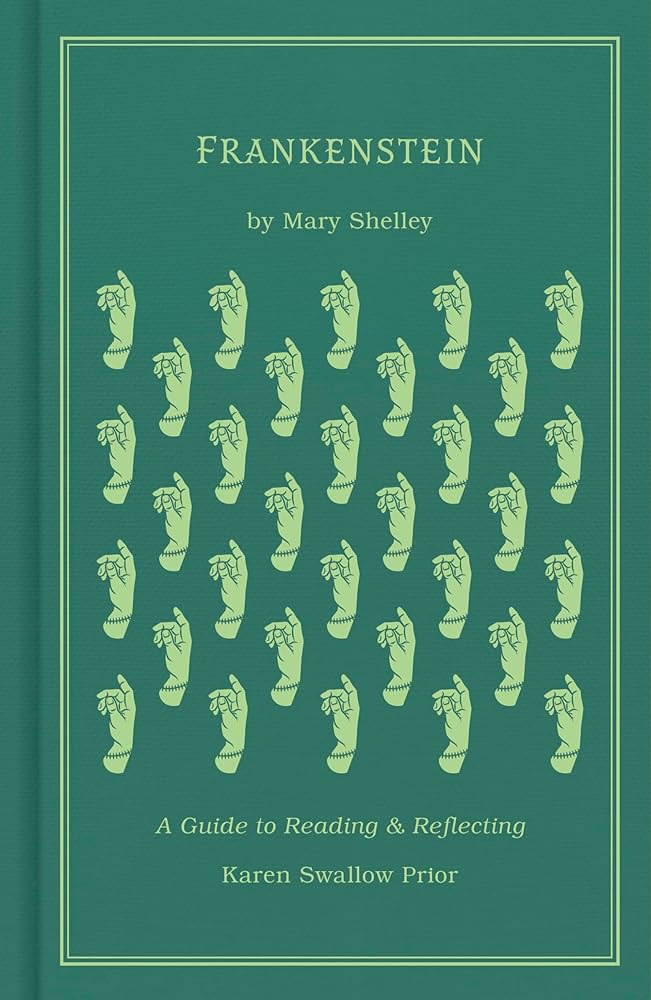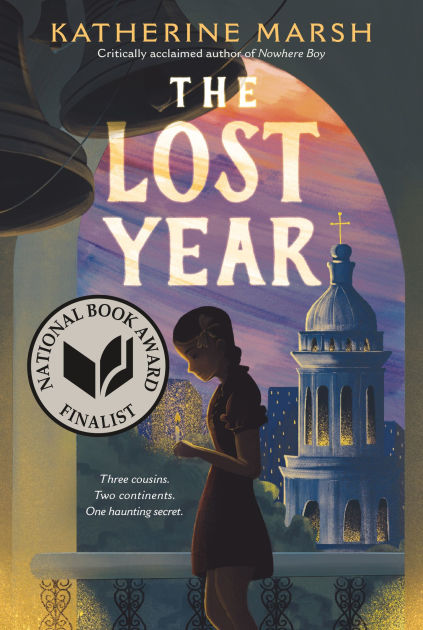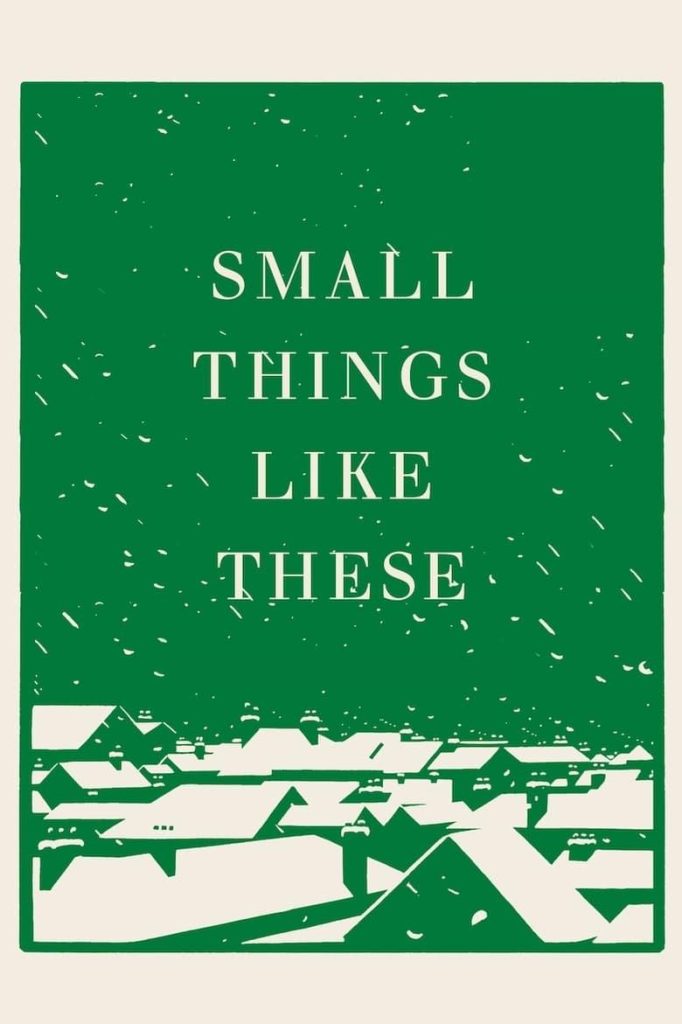The Mythmakers by John Hendrix
5/5 stars
A formational book review by Megan
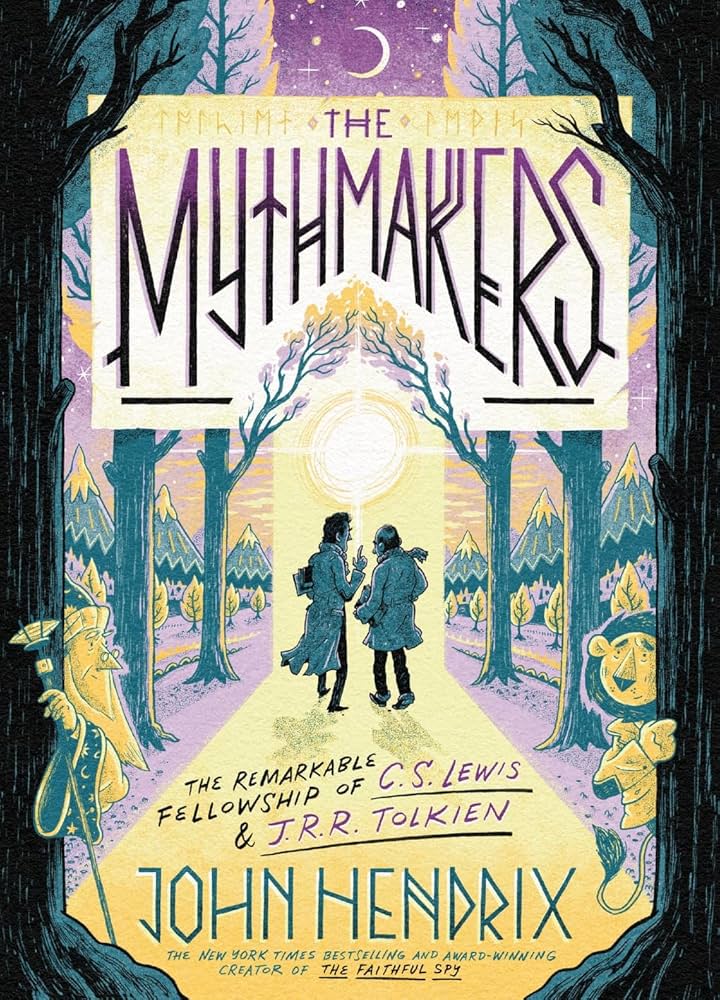
“The notion of return, of “crossing a threshold,” is at the heart of the Narnia stories. It seems to be something that Tolkien missed in his critique. Lewis called these tales “good dreams”, the universal stories of restoration sent by God to every corner of humankind. Yes! Lewis believed the imagination offered each person their own door to a vision of the universe with true meaning.”
The Mythmakers is a unique telling of the friendship of C.S. Lewis and J.R.R. Tolkien. The book chronicles their experiences growing up, through war, and the beginning of their writing journeys. Expertly researched and beautifully told through art and a story of its own.
Reading as a Disciple
“But we must not forget what he called the true gift- perhaps the most obvious attribute of the fairy tale… it is the hinge on which all fairy tales turn, the single unification of escape, consolation, and recovery. Tolkien created a beautiful word for this collision: The Eucatastrophe. All real fairy tales have it: the anti-catastrophe! You have probably felt it in your heart when you’ve read a story. That moment when all hope is lost but then, without warning, there is a “sudden and miraculous grace: never to be counted on to recur! Giving a fleeting glimpse of joy; joy beyond the walls of the world, as poignant as grief. The “happily ever after”! Even better! A longing to live forever in joy. It is the universal desire for the greatest of all escapes- an escape from death.”
Don’t we all long for that eucatastrophe? The sudden and miraculous grace, to be saved by the eagles swooping in like Bilbo or Frodo and Sam; it sure would be helpful some days but it cannot be counted on. That is what makes it miraculous, it was beyond belief. Great stories should leave us pondering and longing for more, for the beauty of the story to continue. “Great myths allow us to slip through the clouds of everyday life and glimpse something divine.” Longing is a new idea for me, an idea that it is a righteous act, to long to see the goodness of God in my life and in the land. Longing teaches us patience and perseverance in the now; that one day God will fulfill his promises.
Reading Communally
“Is any pleasure on earth as great as a circle of Christian friends by a good fire?”
The story of The Mythmakers emphasizes the importance of community and friendship. Tolkien and Lewis shared remarkable talents but each had their own struggles and doubts, it was their friendship that helped fill in those holes. Lewis encouraged Tolkien in his work on The Lord of the Rings, it is said that we might never have had LOTR if it weren’t for Lewis. Their friendship was not all serious business but included other like-minded men that enjoyed “nonsense, dialectical jousting, and raucous arguments.” Gathering Christian friends does not have to be limited to Bible studies and church activities but can include nonsense and the simple act of reading fiction books together “for the simple pleasure of enjoying stories in community.”
Just this morning my lenten devotion was centered on the family of believers that “beneath the cross of Jesus, his family is my own.” We are knitted together as a family of believers waiting for our bride to come. Ephesians 2:19-22 words it as “being fitted together” into a holy temple for our Lord to indwell. What a beautiful image, the image of Christian friends gathering around a fire to discuss literature. 🙂
Final Thoughts
“Myths are traditional, often supernatural stories told by humankind. Stories that, within the telling, unfold something about a culture’s history or belief system.”
I absolutely loved this book, it was so fun to read. There was a lot to unpack and look at, Hendrix said himself that it was hard to curate and decide what to leave out but he did a great job of keeping the book focused and clear to follow. The artwork is phenomenal and easy to follow with so many little nuggets to discover. It is not only a great book for Tolkien/Lewis lovers but for anyone longing for true friendship and for our home in Christ.
Other Books:
The Faithful Spy
The Holy Ghost
